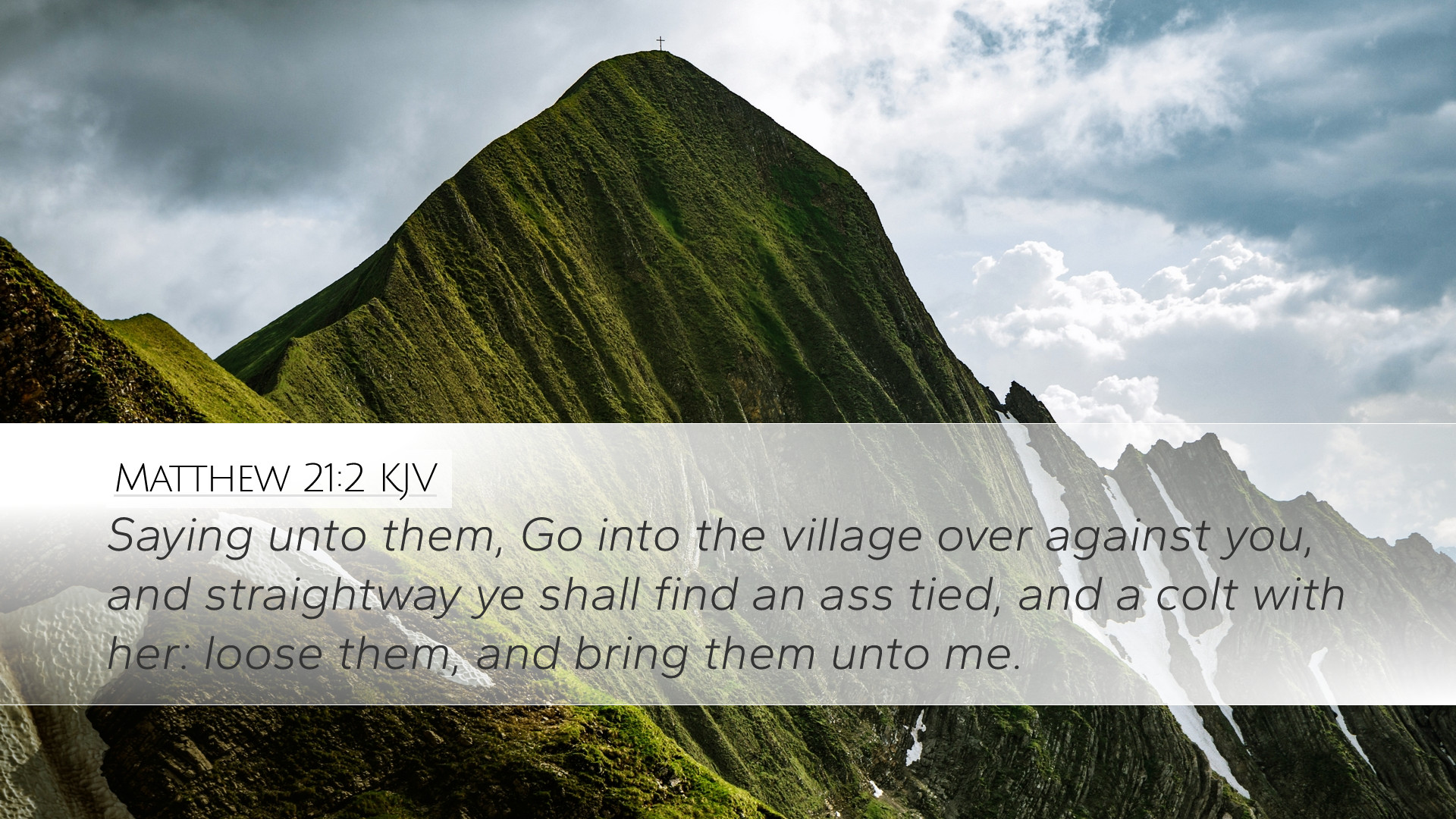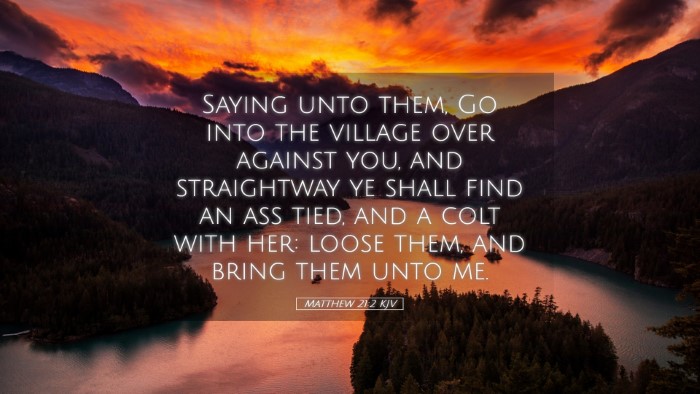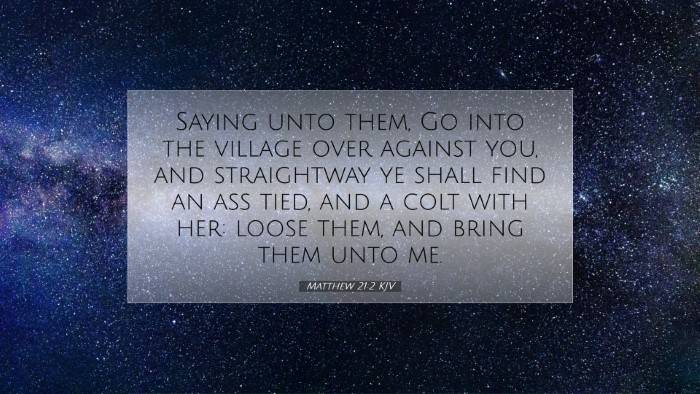Old Testament
Genesis Exodus Leviticus Numbers Deuteronomy Joshua Judges Ruth 1 Samuel 2 Samuel 1 Kings 2 Kings 1 Chronicles 2 Chronicles Ezra Nehemiah Esther Job Psalms Proverbs Ecclesiastes Song of Solomon Isaiah Jeremiah Lamentations Ezekiel Daniel Hosea Joel Amos Obadiah Jonah Micah Nahum Habakkuk Zephaniah Haggai Zechariah MalachiChapter
Matthew 1 Matthew 2 Matthew 3 Matthew 4 Matthew 5 Matthew 6 Matthew 7 Matthew 8 Matthew 9 Matthew 10 Matthew 11 Matthew 12 Matthew 13 Matthew 14 Matthew 15 Matthew 16 Matthew 17 Matthew 18 Matthew 19 Matthew 20 Matthew 21 Matthew 22 Matthew 23 Matthew 24 Matthew 25 Matthew 26 Matthew 27 Matthew 28Verse
Matthew 21:1 Matthew 21:2 Matthew 21:3 Matthew 21:4 Matthew 21:5 Matthew 21:6 Matthew 21:7 Matthew 21:8 Matthew 21:9 Matthew 21:10 Matthew 21:11 Matthew 21:12 Matthew 21:13 Matthew 21:14 Matthew 21:15 Matthew 21:16 Matthew 21:17 Matthew 21:18 Matthew 21:19 Matthew 21:20 Matthew 21:21 Matthew 21:22 Matthew 21:23 Matthew 21:24 Matthew 21:25 Matthew 21:26 Matthew 21:27 Matthew 21:28 Matthew 21:29 Matthew 21:30 Matthew 21:31 Matthew 21:32 Matthew 21:33 Matthew 21:34 Matthew 21:35 Matthew 21:36 Matthew 21:37 Matthew 21:38 Matthew 21:39 Matthew 21:40 Matthew 21:41 Matthew 21:42 Matthew 21:43 Matthew 21:44 Matthew 21:45 Matthew 21:46


Commentary from Public Domain Sources
Matthew Henry
Henry emphasizes the significance of the ass and the colt. He notes that choosing a humble animal for His entrance was a reflection of Christ's character and mission. The animal symbolizes peace rather than war, aligning with the prophecy. Henry argues that Jesus' command to His disciples shows His divine authority and pre-knowledge, as He knew exactly where the animals would be found.
Albert Barnes
Barnes elaborates on the prophetic nature of this event, highlighting the importance of fulfilling Zechariah's prophecy. He asserts that this act was meant to publicly declare Jesus as the Messiah in a way that contrasted with the expectations of a conquering hero. The act of "loosing" the animals for Christ demonstrates the notion that the authority of Jesus supersedes all conventional societal norms.
Adam Clarke
Clarke provides insight into the geographical and cultural context of the verse. He suggests that the village referenced may have been Bethphage, a small village on the Mount of Olives. Clarke also comments on the symbolism of the donkey and colt, proposing that their presence represents the Jews' situation—bound and needing the liberating influence of Christ to be free. He also discusses the theological implications — Jesus’ kingship challenges worldly power and establishes a new kingdom.